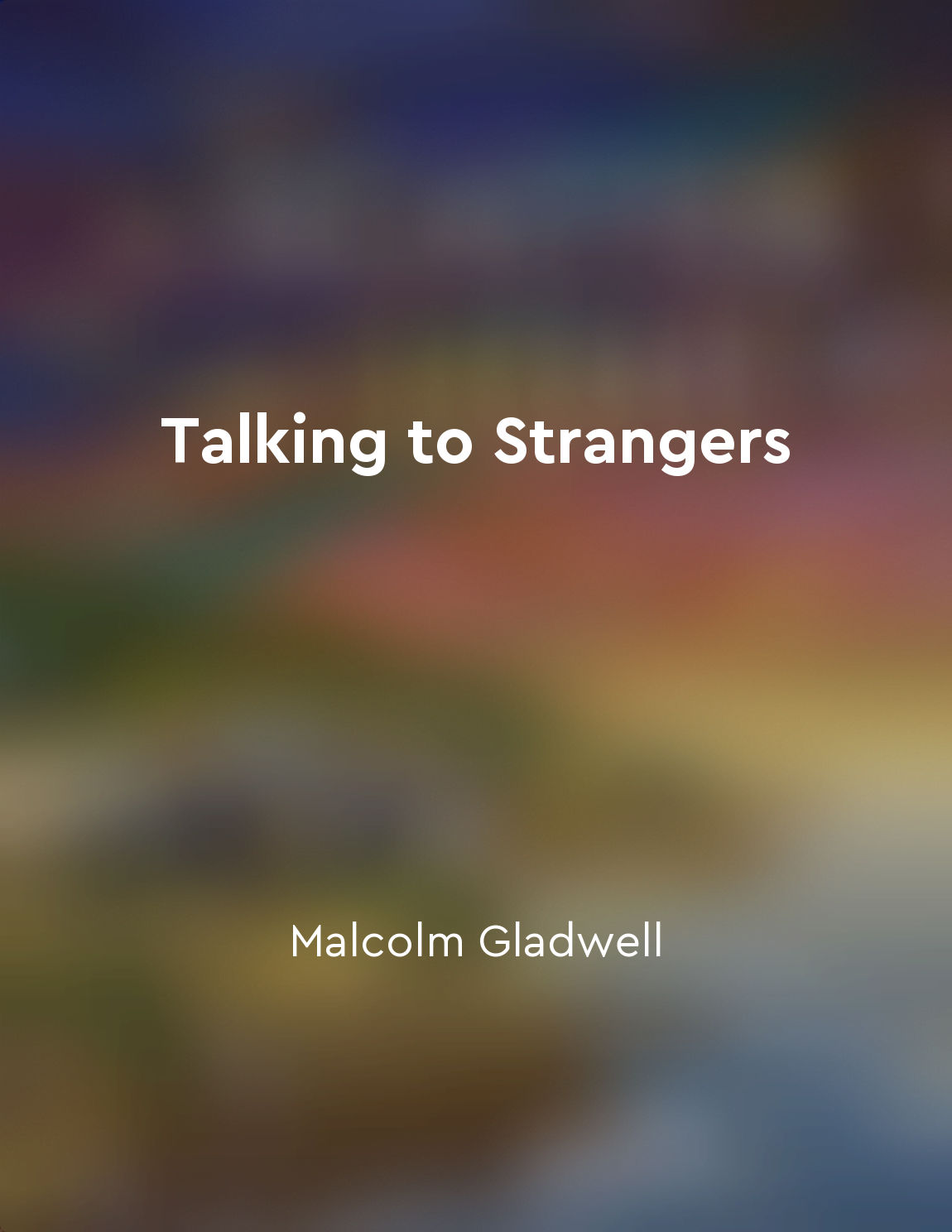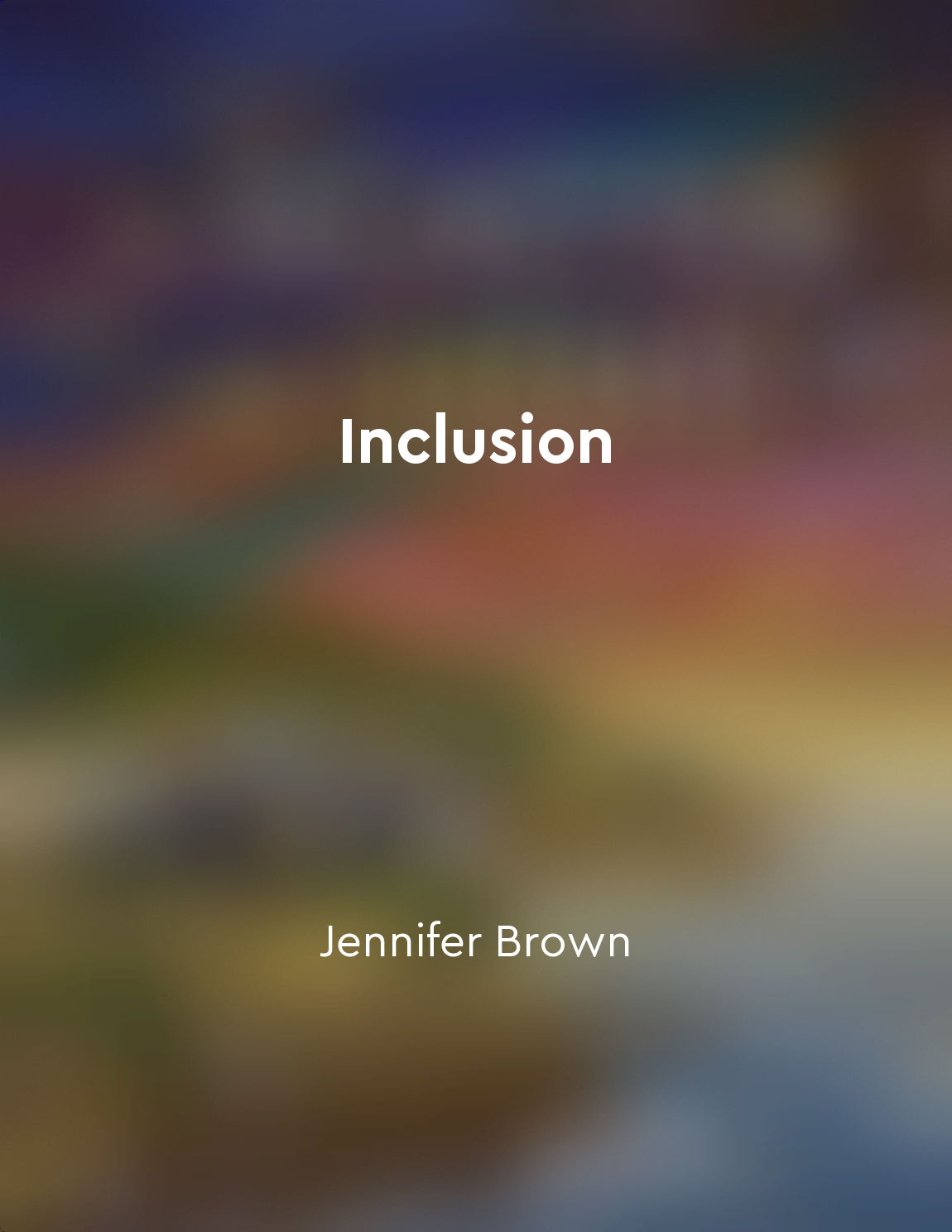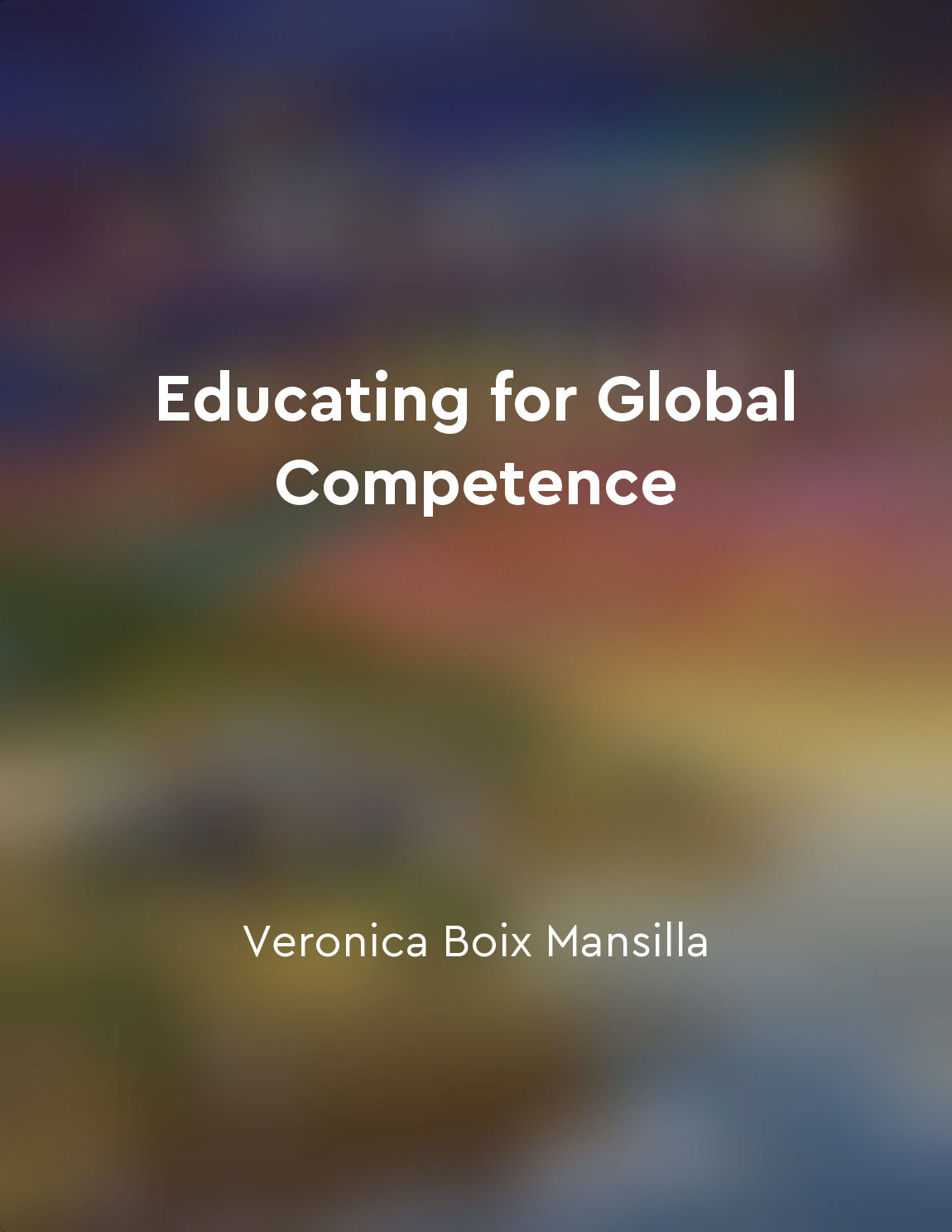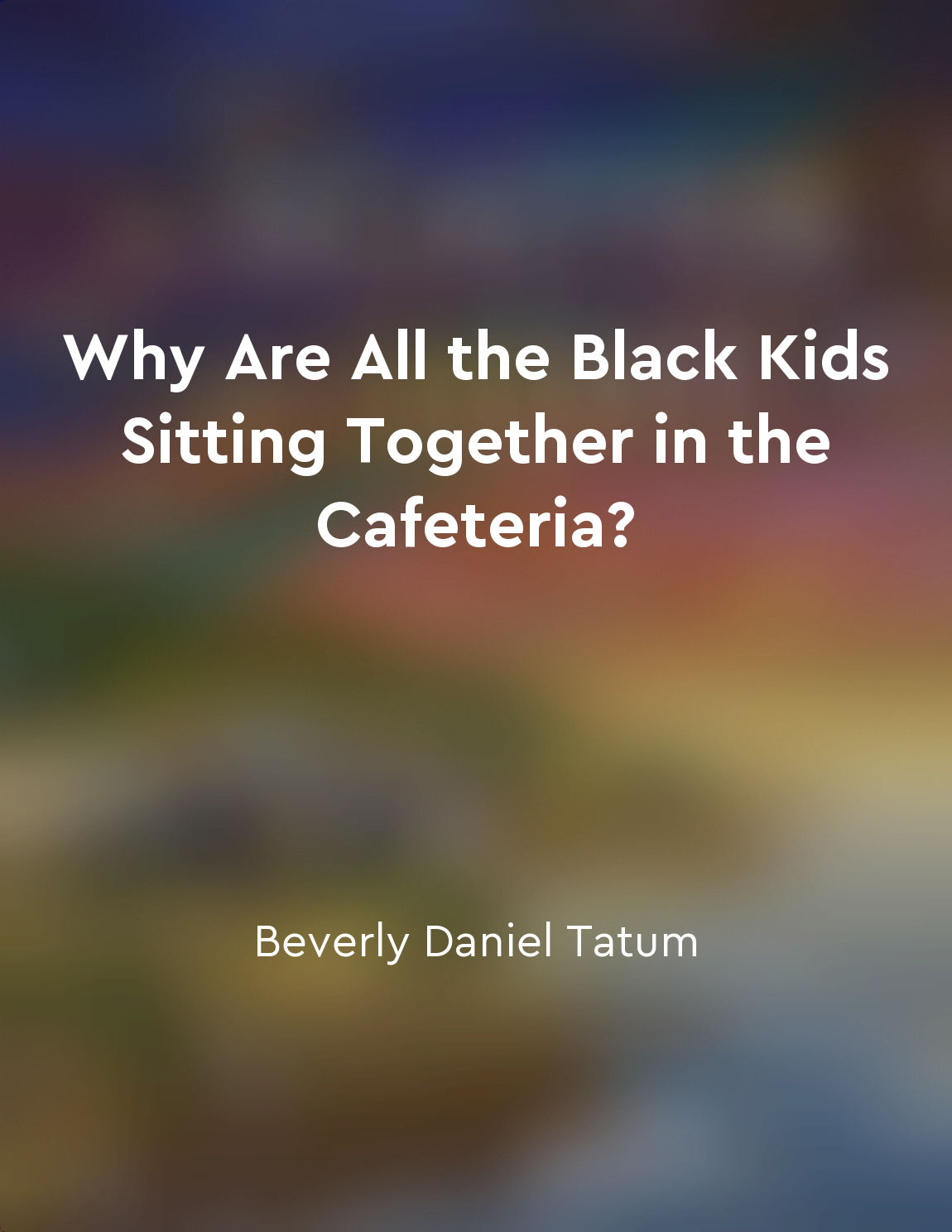Cultural competence is necessary for healthy interactions from "summary" of Why Are All the Black Kids Sitting Together in the Cafeteria? by Beverly Daniel Tatum
Cultural competence is a crucial skill for navigating the complexities of a diverse society. It involves being able to understand, communicate with, and effectively interact with people from different cultural backgrounds. Without cultural competence, misunderstandings and conflicts can easily arise in our interactions with others. When we lack cultural competence, we may unintentionally offend or hurt others by making assumptions based on our own cultural norms and values. For example, a person from one culture may interpret a gesture or phrase from another culture in a completely different way than intended. This can lead to tension and discomfort in relationships, hindering healthy interactions. By developing cultural competence, we can bridge the gap between different cultural perspectives and foster mutual understanding and respect. This involves being open-minded, curious, and empathetic towards others' cultural experiences and worldviews. It also requires self-awareness and reflection on our own biases and prejudices. Cultural competence is not just about being tolerant or politically correct. It is about recognizing the inherent dignity and humanity of all individuals, regardless of their cultural background. It is about acknowledging the impact of historical and social factors on people's lives and experiences.- Where people from different cultural backgrounds interact on a daily basis, cultural competence is more important than ever. It is essential for building meaningful relationships, resolving conflicts, and creating inclusive communities where everyone feels valued and respected. Ultimately, cultural competence is necessary for promoting harmony and well-being in our increasingly diverse society.
Similar Posts

Microexpressions can reveal hidden truths about strangers
Microexpressions are tiny facial movements that happen in a fraction of a second. They can be so fleeting that we might not con...
Economic challenges and opportunities in Spanishspeaking regions
Economic challenges and opportunities in Spanish-speaking regions are significant topics of interest for policymakers, business...

Honesty is essential for effective communication
Honesty plays a crucial role in effective communication. It is the foundation upon which all successful interactions are built....

Promote collaboration
Promoting collaboration is essential for fostering an inclusive environment within organizations. Collaboration encourages indi...

Students should learn to communicate effectively across cultures
In a rapidly globalizing world, the ability to communicate effectively across cultures is becoming increasingly essential. This...
Social institutions are embedded within cultural systems
Social institutions are not free-floating entities, but rather are deeply rooted within the broader cultural systems in which t...
The resilience of the human spirit is aweinspiring
The stories in 'The Thing Around Your Neck' reveal the remarkable strength that resides within each individual. The characters ...
Avoid negative body language cues
Negative body language cues can instantly ruin a conversation, even before a single word is spoken. These cues include crossing...
Patients' stories can provide valuable insights
When patients share their stories, they are not just recounting events. They are offering a window into their unique experience...
Use your intuition to guide you
Intuition is a powerful tool that we all possess within us. It is that gut feeling, that inner voice, that inexplicable sense t...


